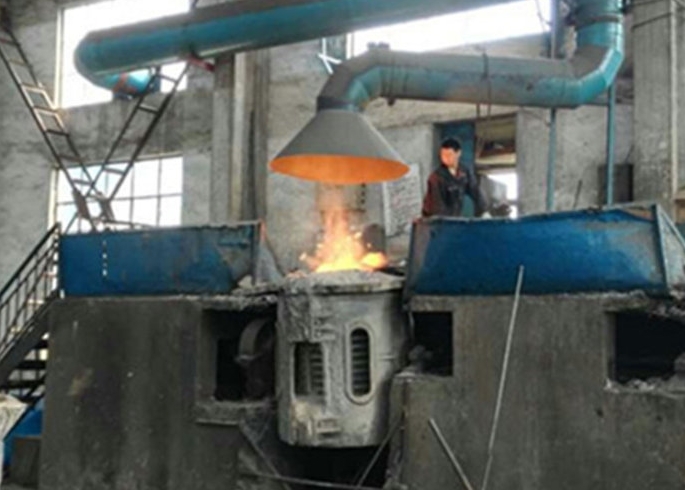- 29
- Mar
Maintenance of induction melting furnace
Fenntartása indukciós olvasztókemence
The maintenance of induction melting furnace is very important. It can detect various hidden dangers in time, avoid major accidents, extend service life, ensure production safety, improve casting quality, and reduce costs. Regularly record the relevant electrical parameters, cooling water temperature and the temperature of key parts of the furnace body (furnace bottom, furnace side, induction coil shell, copper bar, etc.), and the use of the electric furnace can be monitored at any time. Start the diesel generator regularly to ensure its reliable operation.
① Carry out regular maintenance, lubrication, and tightening of the electric furnace at the specified time (such as using anhydrous compressed air to systematically remove dust from the induction coil, copper bar, electric control cabinet, etc., lubricate the lubricating parts, and tighten the bolts).
②Observe the water pressure gauge, water temperature gauge and check the aging degree of the water delivery hose every day; check the flow of each cooling water branch regularly to ensure that the pipeline is not blocked and the pipe joints do not leak, especially the cooling water joints in the solid power cabinet. Water leakage is not allowed. If water leakage is found, tighten the clamp of the pipe joint or replace the clamp; regularly check the water in the water tower spray pool, expansion tank, and the power cabinet and water tank, and replenish it in time; check the spare pump frequently Condition, use the standby pump every 3~5d to ensure that the standby pump runs absolutely reliable.
③Check if the capacitor is leaking. If oil leaks at the capacitor terminal, use a wrench to tighten the nut at the bottom of the terminal.
④ Mid-term maintenance. Grind the AC inlet side porcelain insulators and brackets with ethanol, the diode brackets of the rectifier part, the capacitor porcelain insulators, the main contact part of IGBT (silicon controlled silicon), the inverter and intermediate frequency AC copper bars, etc.; replace the aging water delivery of the electrical cabinet Water pipes, dredge the bottleneck of the water nozzle, IGBT (silicon controlled) water cooling block, replace the AC copper bus insulation board, individual capacitors, etc.

